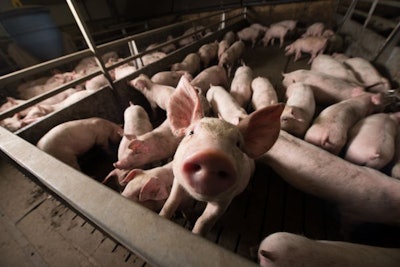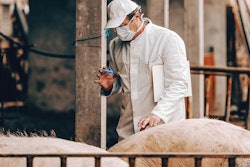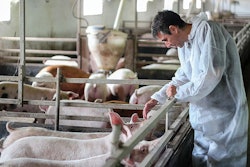
Agriculture secretary announces $3 billion in funding for several initiatives
U.S. Department of Agriculture (USDA) Secretary Tom Vilsack has announced a set of agricultural investments that include up to US$500 million to prevent the spread of African swine fever (ASF).
In a September 29 announcement, USDA said it is preparing US$3 billion in investments that will support drought resilience and response, animal disease prevention, market disruption relief, and purchase of food for school nutrition programs. The support will be made available via the Commodity Credit Corporation (CCC).
“Through this comprehensive set of investments, USDA will take action to prevent the spread of African swine fever, assist producers grappling with drought and market disruptions, and help school nutrition professionals obtain nutritious food for students,” Vilsack said in a statement. “Tackling these challenges head-on better positions USDA to respond in the future as new challenges emerge.”
The investment package includes up to US$500 million to prevent the spread of ASF through robust expansion and coordination of monitoring, surveillance, prevention, quarantine and eradication activities through USDA’s Animal and Plant Health Inspection Service.
“ASF outbreaks have proven devastating in other parts of the world due to lost production and trade. It is critical for all of us to work together to stop the spread of this disease,” USDA said.
The funding will also provide:
- US$500 million to support drought recovery and encourage the adoption of water-smart management practices. From rising temperatures and heat waves, to early snow melt and low rainfall, record-breaking drought has affected producers across the country and has left ranchers with bare winter pastures and short on hay and pushed crop producers to adjust to running their operations with a fraction of the water usually available. This assistance will target these challenges and enable USDA’s Farm Production and Conservation agencies to deliver much needed relief and design drought resilience efforts responsive to the magnitude of this crisis.
- US$500 million to provide relief from agricultural market disruption, such as increased transportation challenges, availability and cost of certain materials, and other near-term obstacles related to the marketing and distribution of certain commodities, as part of Vilsack’s work as co-chair of the Biden-Harris Administration’s Supply Chain Disruptions Task Force.
- Up to US$1.5 billion to provide assistance to help schools respond to supply chain disruptions. Throughout the pandemic, school food professionals have met extraordinary challenges to ensure every child can get the food they need to learn, grow and thrive. But circumstances in local communities remain unpredictable, and supply chains for food and labor have been stressed and at times disrupted. These funds will support procurement of agricultural commodities and enable USDA’s Food and Nutrition Service (FNS) and Agricultural Marketing Service (AMS) to enhance the toolbox for school nutrition professionals working hard to make sure students have reliable access to healthy meals.
Additionally, the USDA has published a request for information seeking public comment and input on the design of a new climate-smart agriculture and forestry partnership initiative.
“Through extreme weather, drought and fire, our agriculture producers are on the frontlines of climate change,” Vilsack said. “The new Climate-Smart Agriculture and Forestry Partnership Initiative will support pilots that create new market opportunities for commodities produced using climate-smart practices and position U.S. farmers, ranchers, and forest landowners as leaders in addressing climate change. The pilots will invest in the science, monitoring and verification to measure the benefits of these climate smart practices. Today, we ask for public input to inform our decision making and enhance the design of this initiative.”
Comments may be provided on or before 11:59 p.m. EST on November 1 via the Federal Register, Docket ID: USDA-2021-0010. Feedback will be used to inform design of the new Climate-Smart Agriculture and Forestry Partnership Initiative. USDA is seeking input specifically on:
- The current state of climate-smart commodity markets
- Systems for quantification
- Options and criteria for evaluation
- Use of information collected
- Potential protocols
- Options for review and verification
- Inclusion of historically underserved communities
Comments are encouraged from farmers and farmer organizations, commodity groups, livestock producer groups, environmental organizations, agriculture businesses and technology companies, environmental market organizations, renewable energy organizations, tribal organizations and governments, organizations representing historically underrepresented producers, organizations representing historically underrepresented communities and private corporations.


















